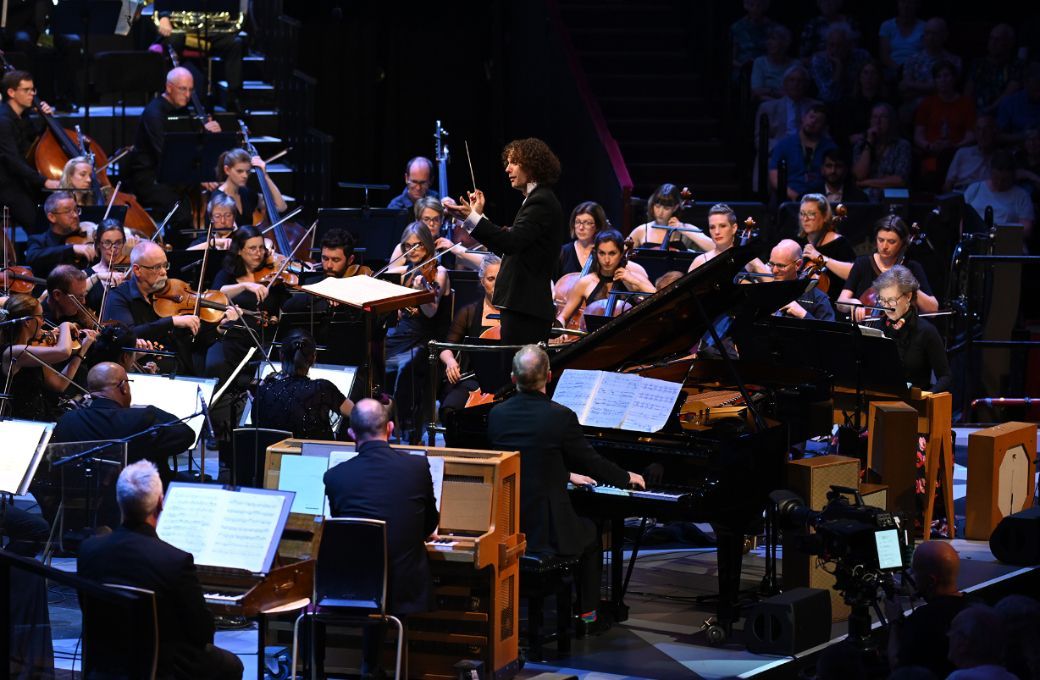Nicholas Collon and the BBC Philharmonic performed two passionate works in this fascinating Prom. Anna Clyne’s The Gorgeous Nothings, co-commissioned by the BBC and The Swingles and receiving its world premiere, is a setting of Emily Dickinson. Clyne chose fragments of words from what are often referred to as the “envelope poems”, which are passing whiffs of thoughts and feelings. The aural picture created in these seven settings uses what was described as an Augmented Orchestra where sounds made by The Swingles and the orchestra were altered electronically in real time by sound designer Jody Elff. This produced a subtly atmospheric effect and heightened the fragile beauty of the music.

Clyne writes for The Swingles in the style that you would expect. Close diatonic harmonies were woven together, beautifully capturing the fragile strength of the poems and sometimes reminiscent of renaissance polyphony or of twentieth century English choral writing. The translucent orchestral textures were judged to perfection, illustrating the varied mood of each of the movements. The performance from all quarters was committed and sophisticated. The Swingles perkily rounded off their contribution to the evening with a lively arrangement of Bulgarian folk songs.
Olivier Messiaen wrote theTurangalîla-Symphonie, his massive monument to love, nearly eighty years earlier, but its musical language still seemed more contemporary than the Clyne we had just heard. By the sheer power of its sonic brilliance and the glory of its four cyclic themes that are obsessively repeated and then developed through the ten movements, it has become a repertoire piece, against all the odds. This is Messiaen reaching out to communicate with his audience in a way he never quite did again. In it you hear the influences that contributed to developing his unique compositional style, from Franck, Debussy and early Stravinsky to Roussel.
Nicholas Collon and the BBC Philharmonic were joined here by Messiaen experts Steven Osborne on piano and Cynthia Millar on ondes Martenot. They were positioned at the front of the stage and joined by Ian Buckle on the celesta and Paul James on the keyboard glockenspiel, evoking the Balinese gamelan that was such an important component of Messiaen’s style. Collon’s approach to the work was intense, seeking out all the larger-than-life ferocity in the piece. The danger in this approach is that the myriad climaxes can seem wearing, and the symphonic progression can be lost: something should be left for the final grandest statement of the love theme. Collon managed to keep just about enough back for this moment and the symphonic journey was completed satisfyingly.
Osborne was lucid and detailed in his interpretation, lighting the technical fireworks when appropriate and seductive in the long and languid sixth movement, Jardin du sommeil d’amour. Miller, with all her decades of performing the piece, drifted effortlessly in and out of the textures. The orchestra were very committed and responsive, with only momentary lapses in ensemble, particularly in the last movement, when everyone in the hall must have felt exhausted by the emotional onslaught.


